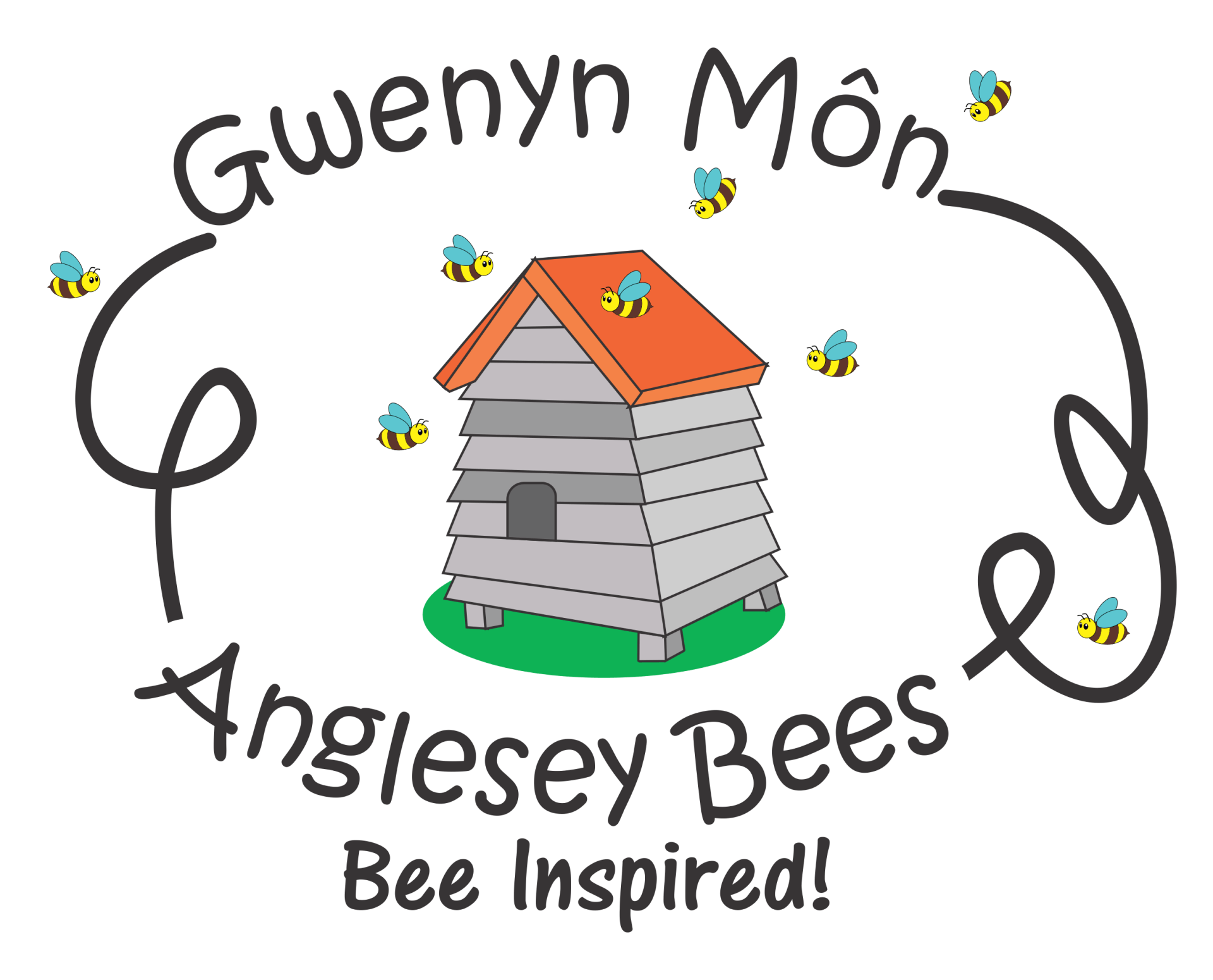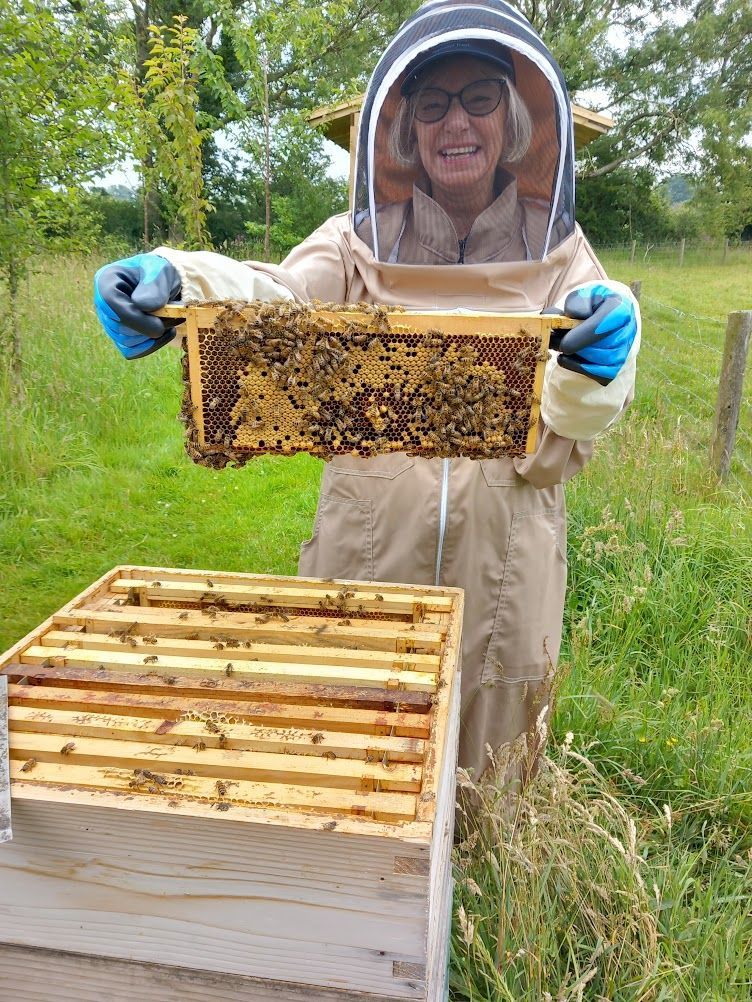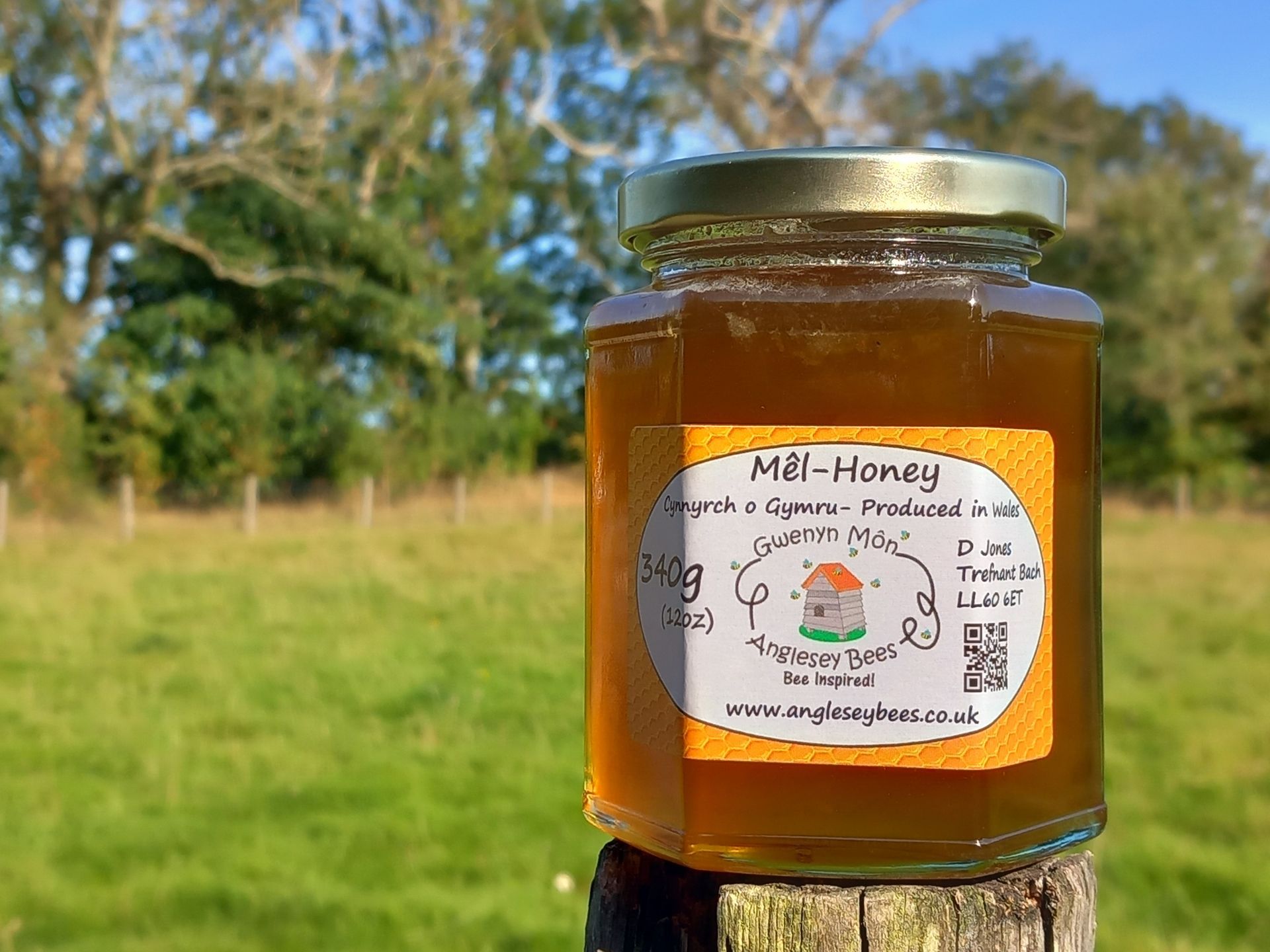Anglesey Bees' Blog
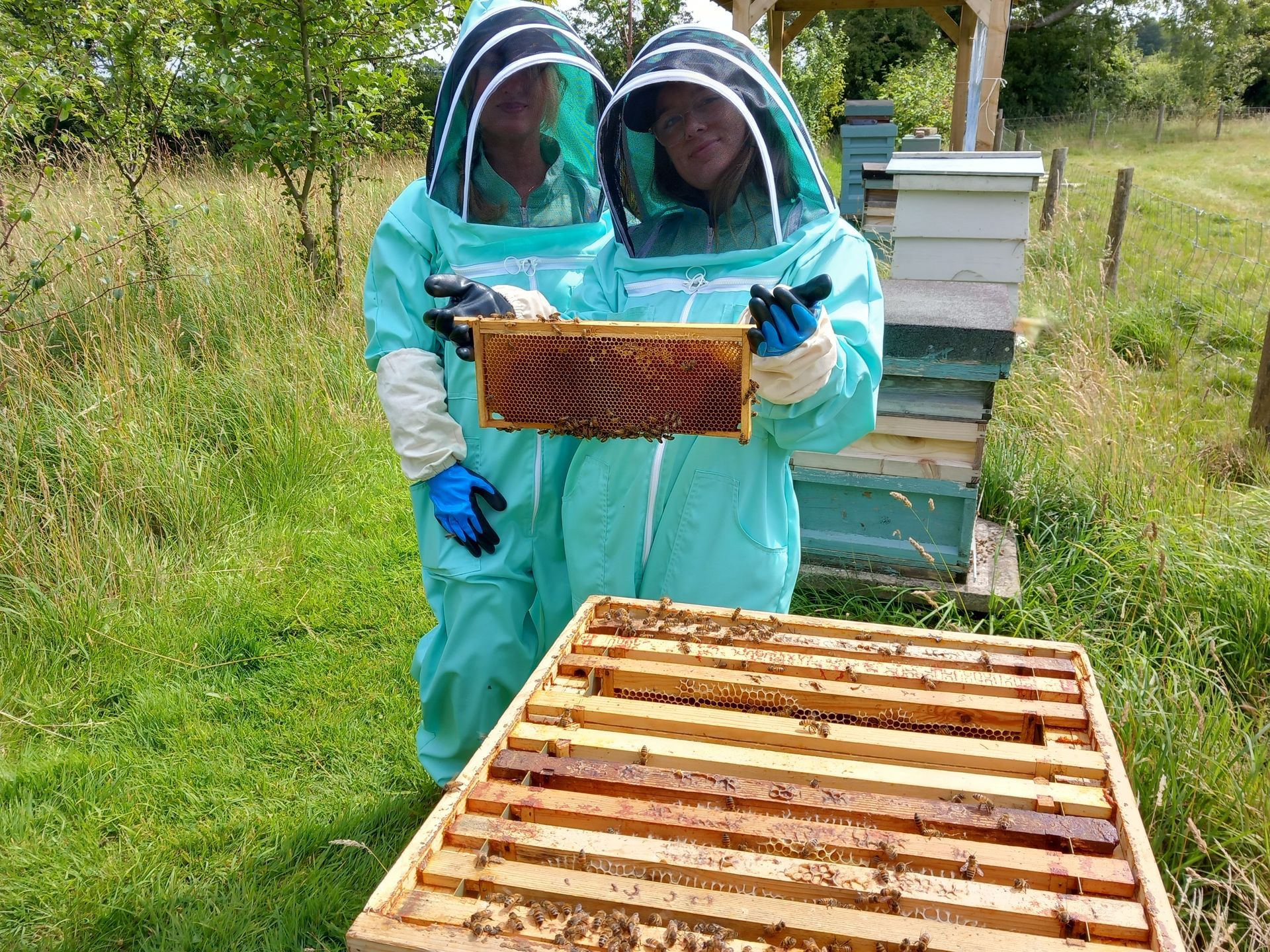
Back in March, encouraged by our success last year with our Anglesey summer wildflower honey, we sent off two jars of our Anglesey spring wildflower honey to be judged by the adjudicating panels of the Great Taste Award. When the results were announced at the end of July, we were pleased to report that we got a two star Award! It seems that it was tasted by three panels of judges and their adjudications were as follows:- "An aroma of caramel lifted from this rich, viscous, amber honey. This a delightfully floral honey with a light astringency on the palate suggesting the bees may have been foraging on tree flowers." "There were the most delicious wafts of sun warmed woody notes. The burst of floral vanilla that initially filled the mouth followed by fruity musky notes with a savoury edge. This clever honey works in harmony on the palate to allow a burst of spring." "Wonderful amber colour with excellent viscosity and an enticing floral hit on the nose. A smooth texture coats the mouth with the delicate sweet flavour rich with floral clean notes singing of the environment these bees have been working." You can buy our honey directly from us in person or on-line or by calling at Anglesey Fine Foods , Valley or Glandwr Butchers Benllech. In addition to our Anglesey Spring and Summer Wildflower honey, we currently have a limited stock of a rare and unusual Eucryphia honey produced on Anglesey. Read about it in a previous blog.
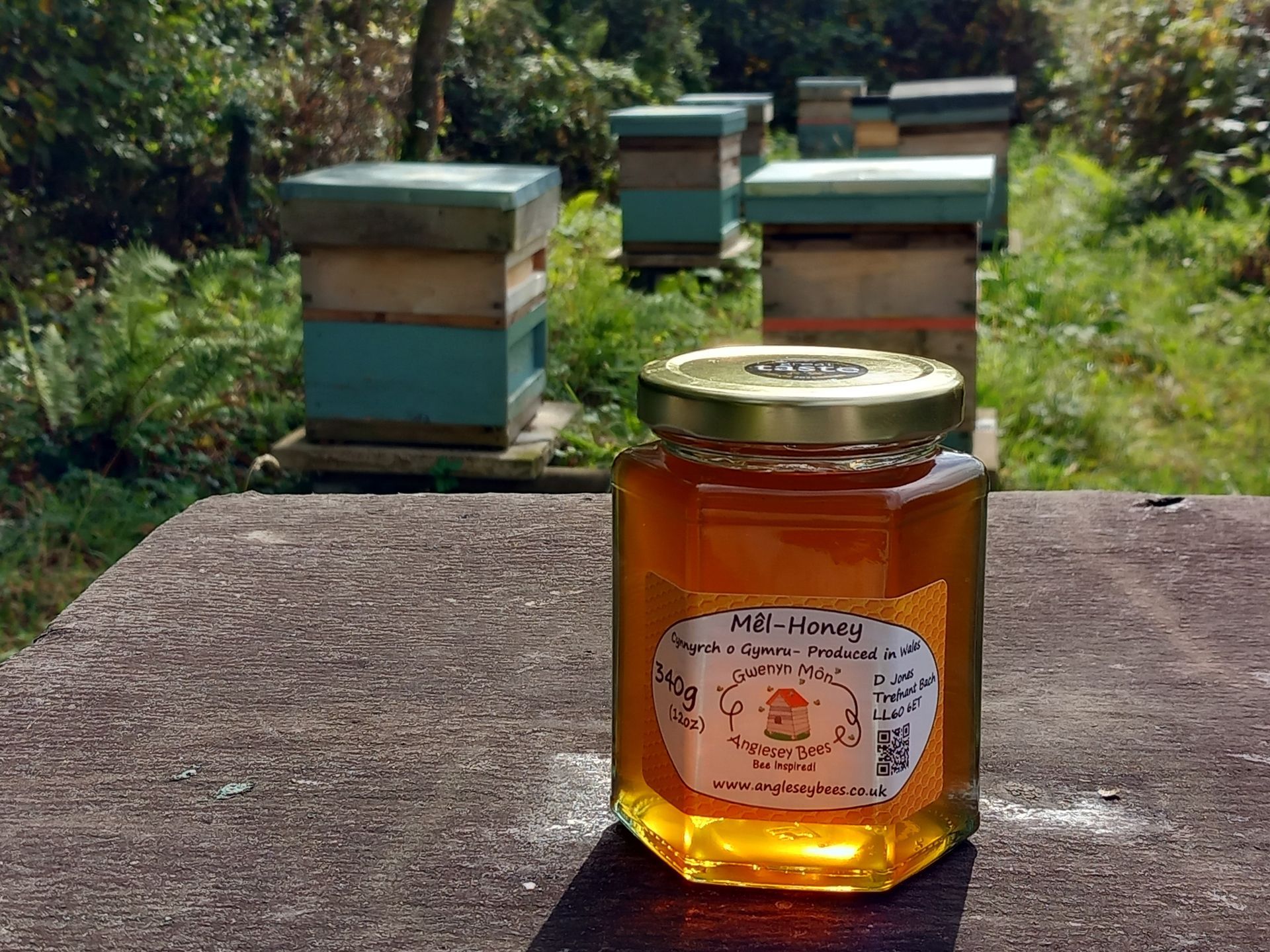
It started by accident back in 2022. In Early August, after harvesting the summer honey, I returned some boxes of empty honeycomb to the hives in an out-apiary on Anglesey so that the bees could lick them dry before I stored them in a stack, off the hives till the following spring. My intention was to remove these boxes of honeycomb from the hives after a few days but as is often the case, I was distracted by more pressing tasks and a week and a half had passed by the time I managed to recover them. To my surprise, the boxes were heavy when I lifted them off the hives and frame after frame were full to the edges of capped honey! Like a proud father carrying his new-born home from the maternity ward, I brought, what I soon discovered to be a rare treasure, home to be extracted. I proceeded as normal by uncapping the honeycomb and attempted to extract the honey from them by centrifugation. I was surprised that after a few minutes of spinning at low speed, virtually no honey had been flung out. I increased the speed - still nothing! I accelerated to top speed and suddenly with no warning - bang! bang! I slammed the emergency shut-off knob and the spinner ground to a halt. At the bottom of the extractor I found the shattered remains of four frames, still heavy with what appeared to be liquid honey! Bewildered, I came to the conclusion that this was not a late crop of bramble honey but something unusual and very very different to what we were used to. The honey appeared to be in a liquid state but refused to be extracted! Although I have no experience of harvesting heather honey, this honey seemed to have similar thixotropic properties. Both heather honey and our mystery honey have a gel-like consistency of a non-Newtonian liquid akin to ketchup or toothpaste. As a consequence it does not flow predictably and forms a gel at rest but can turn liquid when agitated or stirred. The viscosity of heather honey, due to its higher concentration of colloidal proteins, is so high that it makes the extraction of the honey from the comb very difficult. That’s why heather honey is extracted by pressure (instead of centrifugation), which destroys the combs. Although there was no expanse of heather within range sufficient for our bees to produce this honey, we concluded that we had little choice but to treat it like heather honey. We proceeded to cut the honeycomb from the wooden frames, pack it into a muslin sack and squeeze the honey out of it using a honey press, a device with a threaded shaft and T-shaped handles a bit like an apple press. The honey that it yielded had an unfamiliar bright o range glow, a jelly-like consistency and the taste was divine and unlike anything we had previously produced. We were flabbergasted!
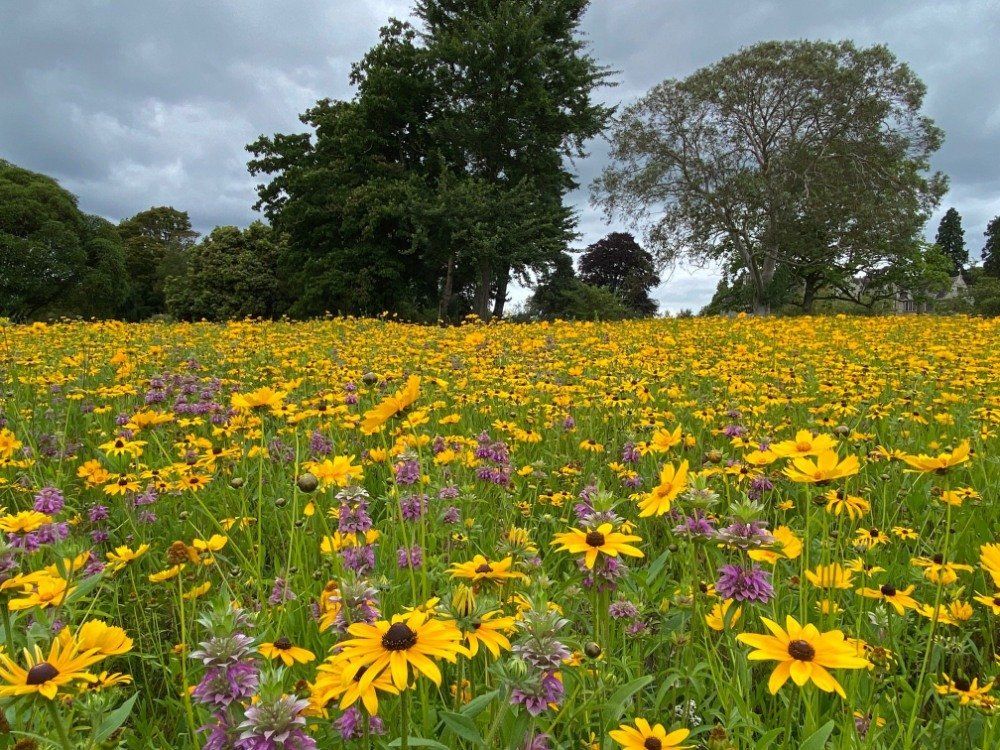
Creating a wildflower meadow or just a wildflower border may appear to be a fantastic way to support pollinators like bees, butterflies, and other beneficial insects. They undoubtedly offer numerous benefits, both for the environment and for us. Wildflower meadows provide essential habitats and food sources for pollinators like bees, butterflies, and other beneficial insects. These pollinators play a crucial role in the reproduction of many plants, including crops that humans rely on for food. Wildflower meadows support a diverse range of plant and animal species. By creating a habitat based on a variety of native plants, you encourage a healthy ecosystem where different species can thrive. In addition to pollinators, wildflower meadows provide habitats for other wildlife, such as birds, small mammals. These animals contribute to a balanced ecosystem and can help control pest populations.
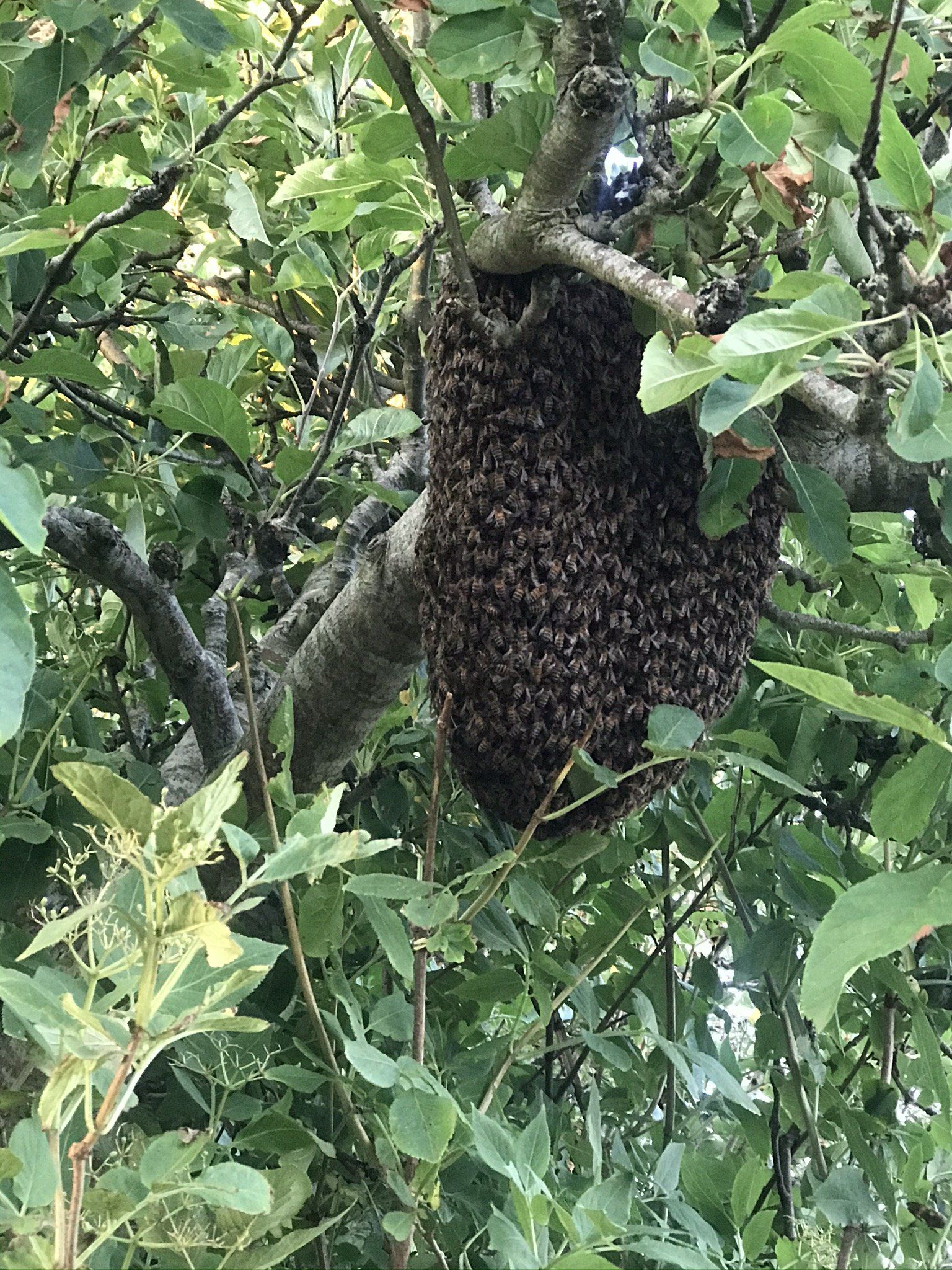
Many beekeepers accept swarming as an inevitable event. Sadly, it results in a significant loss of bees and impacts honey yield and may result in complete colony loss. Furthermore, the need to remove swarms from buildings may cause distress, inconvenience, structural work and cost to neighbours. On our beginner and improver courses we stress the importance of swarm control and share effective management practices with our students that virtually eliminate the occurrence of swarming. First of all, lets investigate what happens when bees swarm and what triggers this to happen. Swarming is a natural process that honeybees undertake in an attempt to reproduce and spread by dividing and starting new independent colonies. In preparation for swarming, the colony initiates the rearing of new queens. Then the old queen and a significant proportion of the flying bees from the colony leave the hive in an attempt to set up home elsewhere. New queens are reared in specially constructed structures called queen cells. An egg, laid in these structures by the old queen hatch into larvae, that are then fed with copious quantities of a high protein diet of royal jelly, derived from pollen and provided by young nurse bees. Around the eighth day after the egg was laid, feeding stops and the queen cell is sealed with a cap of wax and the larvae pupate. It is on this day that the old queen and accompanying flying bees swarm from the hive, leaving behind some workers and some developing queens in their queen cells to hatch out in a further eight days.
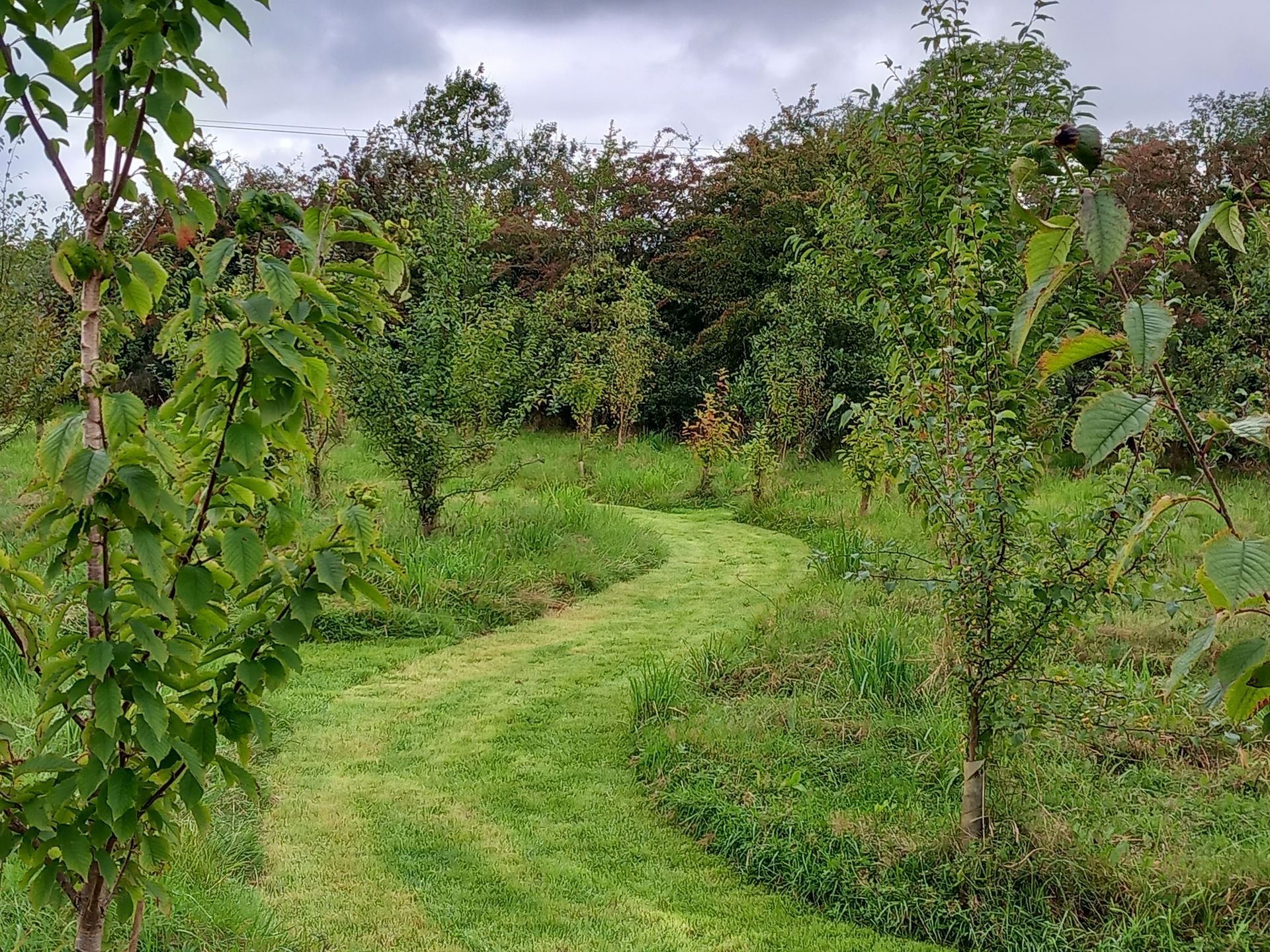
Trefnant Bach, the home of Anglesey Bees (along with our neighbouring Trefnant Wen and Trefnant Ddu has been in existence for a long time. There is a record of its existence in the 1841 census, earlier court and church records and tithe maps. Recently I discovered records of historical field names such as Cae Hen Gaseg; Cae Beudy; Cae Gamdda; Cae Flaen Drws; Waun and Parciau Mawr. I therefore have every reason to believe that the field boundary hedges consisting predominantly of hawthorn, blackthorn, dog-rose, sycamore and ash and associated ivy, brambles, gorse and rosebay willow herb are ancient. Since we became custodians of Trefnant Bach, we have managed them sympathetically and the sycamores, in particular make a valuable contribution to our spring honey. Furthermore, we manage the spread of ivy through the hedges. On one hand we encourage the contribution of autumn ivy nectar as a valuable top up to winter stores whilst on the other hand, we aim to prevent the collapse of hedgerows under the weight of ivy. Previously, our three fields were grazed by horses, resulting in selective close grazing in some areas and vast expanses of rejected, rank tussocky growth caused by repeated dunging. Stockproof fencing and a small flock of Llŷn sheep cured that over time, resulting in more of a bowling green appearance. The unimproved permanent pasture contained pockets of indigenous white clover, similar in appearance to the land-race, Kent Wild White. I applied the findings from my research in an earlier career as a pasture ecologist at what is now called The Institute of Biological and Environmental Research near Aberystwyth. When a grass/white clover pasture is grazed hard under rotational grazing, there is a change in the ratio of red:far red light reaching the clover stolons at the soil surface, caused by less absorption by the less dense sward. This causes a switch in the growth pattern resulting in more branching and the spreading of clover stolons at ground level. When the livestock were moved on to another field, the biomass accumulated and the resultant effect on the red:far red light perceived by the clover stolons, caused them to stop initiating more branches and produce leafy vertical growth instead and ultimately a mass of flowers which make a significant contribution to our summer honey.
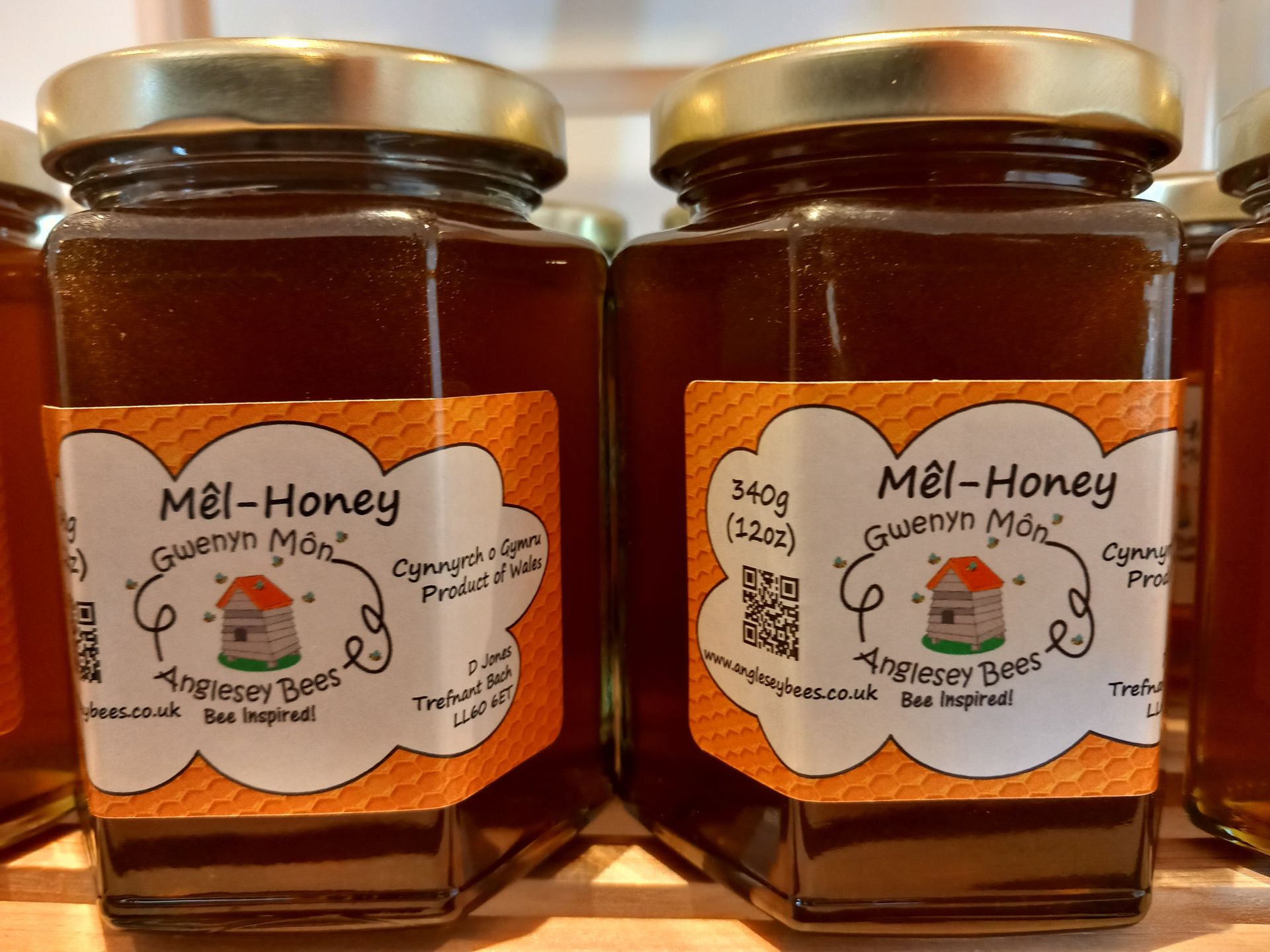
According to The Vegan Society “Honey is probably the product most frequently mistaken as vegan-friendly.” Vegans avoid any animal products or by-products, and honey is produced by bees, which are animals. However, we increasingly get enquiries about our honey from vegans and without exception they don’t leave without tasting and buying some of our honey! According to BBC Good Food, “honey is a product made by bees, which are living creatures. Harvesting honey is seen as detrimental to the bees, who have worked hard to manufacture it in order to support their own survival through the colder months. Green Matters also confirms that “vegans do not eat honey, even in small, local, family-run beehives, beekeepers must still keep bees in captivity and take their honey — which is their food — from them.” So why do vegans keep on buying our honey? Well, let’s dispel some myths and common misconceptions perpetuated by vegan authorities:- 1. “Harvesting honey exploits the bees and deprives them of their food source. When beekeepers remove honey from a hive, they replace it with a sugar substitute which is significantly worse for the bees’ health since it lacks the essential micro-nutrients of honey." In reality, honey provides bees with no more than sugar, which they use as a source of energy. During the spring and summer months, when there is a plentiful supply of nectar, bees will collect a surplus if we provide them with extra space to store it in the hive. They do not have an “off switch” when they have collected enough for their needs. We leave sufficient honey for the bees needs when we harvest it. It’s not in our interest to let them starve to death during the winter! To safeguard against this, we monitor the level of stored food during the winter and top it up with sugar when it gets low. Bees derive essential nutrients such as vitamins, minerals , amino acids and proteins from the pollen they collect and not the honey. They store the pollen separately from the honey, close to their brood nest. This is unaffected by harvesting honey and topping up their winter stores with sugar. Bee colonies that swarm and live in the wild have a shockingly low survival rate. According to some estimates, the survival rate in the wild is as low as 25% and many don’t make it through the winter and die from starvation. 2. Commercial honey production involves unethical practices such as clipping the queen’s wings to prevent their colonies from swarming and leaving the hive and culling hives post-harvest to keep costs down. We regard such practices as completely unnecessary. Wing clipping is a short cut and a lazy way of attempting to preventing swarming and is often unsuccessful. When a clipped queen leaves the hive, she drops to the ground unable to fly. Without the queen, the flying bees, unable to swarm, return to the hive. In the meantime the queen may or may not crawl back into the hive. If unable to find her way back to the hive, the clipped queen is abandoned and perishes outside the hive. The colony, now without a queen starts raising a replacement queen and if successful there will be a delay of several weeks before there is a new resident egg-laying queen and this may impact on the size of the colony, amount of honey collected and winter survival. We, on the other hand inspect our hives on a regular basis, observe the early tell-tale signs of swarm preparation and manipulate the hive to ensure that the bees have ample room inside (as congestion in the hive is one of the main triggers of swarming). We are proud of the fact that we succeed in maintain our hives without them swarming. We ensure that this skill is acquired by our students on our beginner and improver courses as we regard allowing bees to swarm as unsociable behaviour. During May and June I routinely receive 4-5 phone calls daily from distressed members of the public requesting the removal of swarms from their premises! With old hollow tree trunks being removed for safety reasons, swarms of bees seek our alternative cavities including chimneys, cavity walls, roof voids, soffits and post boxes. Not only does this cause unnecessary distress to the property owner, there is substantial disruption, structural work and cost to remove them. 3. Beekeepers keep honeybees in captivity. Bees are not routinely shut in the hive at night! They have an incredible ability to fly up to 3 miles from their hive and accurately navigate their way back and cease flying before dusk. As explained earlier, bees may choose to make preparations to swarm from the hive and young colonies may abscond and set up home elsewhere if conditions in the hive are not to their liking. 4. In conventional beekeeping, honey bees are specifically bred to increase productivity. This selective breeding narrows the population gene pool and increases susceptibility to disease and large-scale die-offs. Diseases are also caused by importing different species of bees for use in hives. Apis mellifera is the only honey-producing species of bee in European countries. Other more exotic species would not survive here and by definition would not breed with our species of bees as they belong to a different species so importing “different species of bee” is pointless and is an inaccurate representation of the facts. Furthermore there is a ban on importing colonies of honey bees into the UK. There are no such things as pure British bees for historical reasons. Locally occurring bees are often kept by beekeepers without intentionally selecting for desirable characteristics. Sadly, they are often aggressive and swarmy. Coupled with poor management they can cause a nuisance to the public. We have carefully improved and broadened the gene pool of our bees by working diligently with other British bee breeders. As a consequence, our bees have an enhanced level of disease resistance and exhibit calm and non-aggressive behaviour as experienced by the hundreds of individuals attending our educational events. 5. The honey industry, like many other commercial industries, is profit-driven where the welfare of the bees is often secondary to commercial gain. Let’s be realistic, all commercial industries and businesses (including vegan approved ones) are profit driven. Selling honey and delivering beekeeping training and experiences is how we make a livelihood. However, at Anglesey Bees, the drive for animal welfare, sustainability and environmental custodianship comes foremost. In common with other caring livestock farmers, we love our bees and have a special relationship with them! This is hard to understand without spending some time with us and our bees. Vegans inevitably leave us with a jar or two of honey in their hands and satisfied about our high welfare standards. 6. Mass breeding of honeybees affects the populations of other competing nectar-foraging insects, including other bees. Overwhelmed by the ever-inflating quantities of farmed bees, the numbers of native bumblebees have declined. There is a huge generalisation here. Although generally European pollinator populations have declined, this is largely due to habitat destruction, use of insecticides and climate change. However, in contrast, on Anglesey the situation is very different due to the far less intensive land management and absence of arable crops here. Furthermore, at Anglesey Bees we manage our land sympathetically to encourage the development of wildlife habitats specifically for all pollinators including our bees. It is also a haven for red squirrels, hedgehogs, weasels, frogs, newts and adders. In addition we have transformed an acre of grassland into a bee-friendly woodland by planting 1000 broad-leaved trees with support from the Woodland Trust. Tree species have been specifically chosen for nectar and pollen production. We have already noticed a significant increase in biodiversity there, particularly amongst invertebrates. I will discuss further how we develop and manage wildlife habitats in a future blog. 7. The importing of honey into the UK also increases our carbon footprint through the emissions associated with transport. Of the honey consumed in the UK, 95% of it is imported, mostly from China. This is something that we can agree on! The solution is simple, buy local premium honey instead of cheap inferior stuff labelled as non-EU honey. I shall discuss the issue of honey quality, fake and adulterated honey in a future blog.



